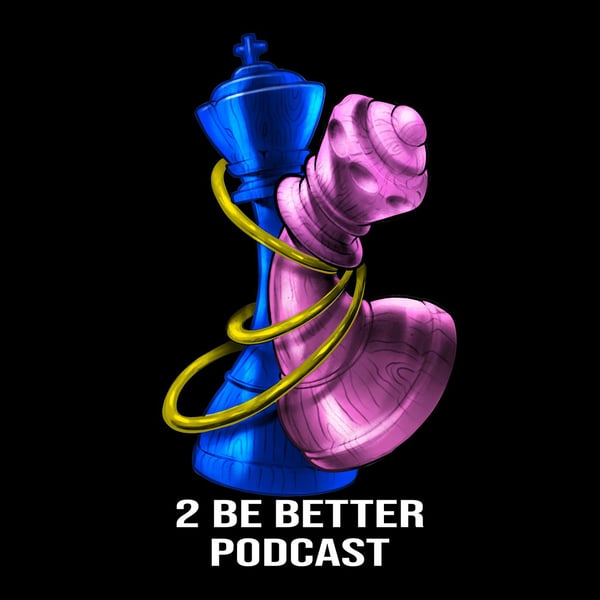The attachment styles with Eva Under Fire
2 Be Better
Chris Burkett
4.8 • 1K Ratings
🗓️ 16 May 2025
⏱️ 42 minutes
🧾️ Download transcript
Summary
Become a supporter of this podcast: https://www.spreaker.com/podcast/2-be-better--5828421/support.
Transcript
Click on a timestamp to play from that location
| 0:00.0 | Welcome back Bumblebitches. I am here today with Amanda once again. Very excited to have you back. |
| 0:09.5 | Oh, thank you so much for having me back. We had such a great conversation last time. I was so thrilled when you were like, we should do this again. |
| 0:15.7 | Oh, yeah. You are a whole wealth of information and it's fun picking your brain. |
| 0:22.2 | Oh, I love that. Thank you. |
| 0:22.9 | Of course. |
| 0:30.0 | So today we are going to be talking about the four attachment styles or the four most known attachment styles. |
| 0:35.4 | There has been branch off of branches off of things, however you want to phrase that. |
| 0:36.4 | I know. |
| 0:38.2 | They're always trying to get like closer and closer to like I, I feel like we just add words to try to describe more accurately |
| 0:42.9 | what's happening, right? But I think, I think the basis is still those same four. Definitely. |
| 0:50.1 | And the book that I read or listened to on Audible for this information is, I should have had that pulled up, Master Your Attachment style by Scott A. Young. |
| 1:00.7 | Fairly quick read. It took about three hours, an hour and a half if you're doing it on double speed. |
| 1:07.2 | I love that. I could never double speed, but good for you. |
| 1:18.6 | It helps me focus. My mind likes to go off to Wonderland sometimes, so when I bump up that speed, it keeps my attention on it. Wow. |
| 1:19.6 | So before we jump into the questions that I have for you, I just wanted to touch on the four different attachment styles that was hit on in the book and give a little description of each of them so the people who are listening |
| 1:31.9 | kind of get an idea of what they might be or what their partner may be. So the first one I have |
| 1:37.1 | written down is dismissive avoidant. And the attributes that Scott contributed to this one was difficulty being close to others, hard to open up, doesn't like to depend on other people. |
| 1:49.9 | Romantic partners tend to want more intimacy than the dismissive is comfortable giving. |
| 1:55.4 | In childhood, they were used as an emotional punching bag and avoid to not fall into this role again in romantic |
| 2:01.2 | relationships. Sometimes they have inflated egos. They have little memories of childhood. They held |
| 2:09.2 | back negative emotions to avoid backlash in childhood. And they believe that they can only rely on |
| 2:14.9 | themselves. Do-hmm. |
... |
Please login to see the full transcript.
Disclaimer: The podcast and artwork embedded on this page are from Chris Burkett, and are the property of its owner and not affiliated with or endorsed by Tapesearch.
Generated transcripts are the property of Chris Burkett and are distributed freely under the Fair Use doctrine. Transcripts generated by Tapesearch are not guaranteed to be accurate.
Copyright © Tapesearch 2025.

